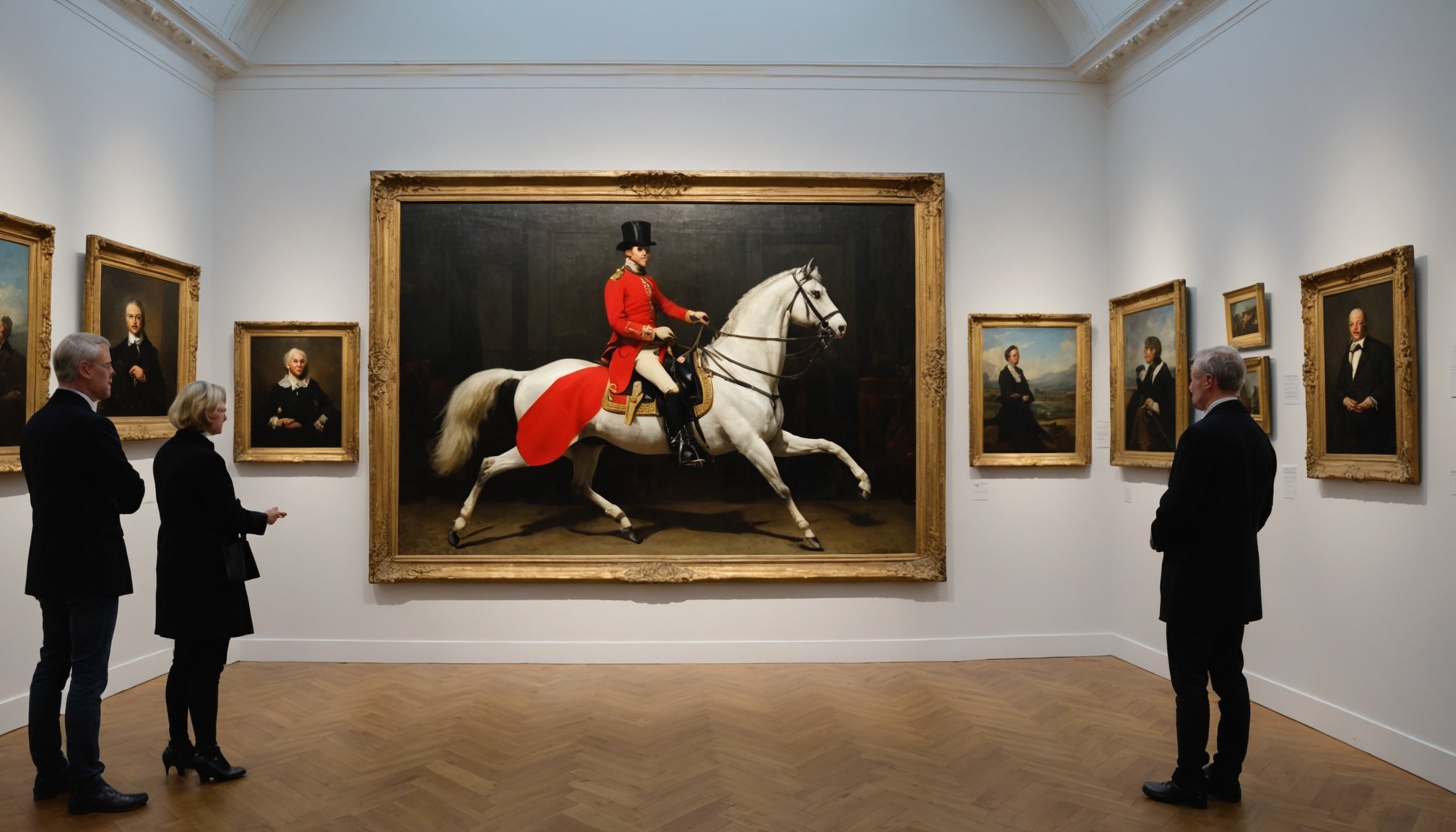Understanding Artist Resale Rights in the UK
Artist resale rights play a pivotal role in the UK art law, offering artists a share in the profits when their work is resold. This concept ensures that artists benefit financially from the increasing value of their work over time. Understanding these rights is essential for artists, galleries, and collectors alike.
The historical roots of artist resale rights in the UK trace back to the introduction of the droit de suite, a principle dating to early 20th-century France. The UK formally embraced these rights with the implementation of the Artist’s Resale Right Regulations 2006, aligning with broader European directives on art sales.
In the same genre : Ultimate Roadmap to Kickstart Your UK Fitness Tech Startup: Comprehensive Step-by-Step Success Guide
The legal framework underpins these rights, mandating that a percentage of the resale price be paid to the artist or their heir. This regulation is primarily applied to works sold for over €1,000, ensuring that only significant transactions are affected. The rates vary, capped at a maximum of €12,500 per sale.
Navigating the landscape of UK artist resale rights requires understanding key legislation and historical traditions. This knowledge helps stakeholders comply with the legal obligations while fostering a fair art marketplace where artists are rightfully compensated for their creations.
In the same genre : Ultimate Guide to Starting a UK Recycling Center: Master Environmental Regulations Effortlessly
Legal Implications for Art Galleries
Art galleries must navigate a complex landscape of legal obligations when dealing with artist resale rights. Compliance is crucial to ensure that these rights are respected and properly executed. Gallery owners are required to understand the specific legal framework that mandates payment of resale rights to the artist or their heirs.
Required Legal Knowledge for Gallery Owners
Gallery owners should familiarise themselves with the intricacies of resale rights legislation in the UK. This involves knowing the threshold values that activate these rights and the percentage rates of royalties due. It is essential for gallery owners to understand their responsibilities to collect and remit these payments accurately.
Responsibilities and Consequences
Galleries are responsible for facilitating and documenting resale rights transactions. Failing to comply with these legal obligations can lead to legal consequences, including fines and reputational damage. Therefore, establishing robust internal processes is necessary to ensure compliance and avoid potential pitfalls.
Gallery owners who incorporate resale rights into their operational processes help sustain a fair art market. By doing so, they uphold artists’ rights and contribute positively to the art community. This dedication to compliance not only benefits artists but also fortifies the gallery’s standing within the industry.
Practical Steps for Galleries to Implement Resale Rights
Implementing resale rights in an art gallery requires a structured approach, ensuring both compliance with UK art law and seamless integration into day-to-day operations. Here is an implementation guide detailing practical steps:
Setting Up Resale Rights Processes
Establishing processes begins with identifying which artworks are subject to artist resale rights. Galleries should develop a system to track these sales meticulously, ensuring that all transactions are compliant with the legal framework. Clear guidelines should outline procedures for collecting and remitting payments, thereby preventing oversights.
Training Staff on Resale Rights
Regular training sessions for staff are crucial. Staff must understand their legal obligations and the importance of resale rights compliance. This training should cover the specifics of resale rights, such as threshold values and royalty rates, ensuring staff can communicate confidently with stakeholders.
Documentation and Record-Keeping
Accurate and thorough documentation is vital. Galleries must maintain detailed records of each transaction, including paperwork related to artist resale rights payments. This not only protects the gallery from disputes but also ensures transparency and accountability. By applying these practical steps, galleries reinforce their commitment to artist rights and showcase best practices in the art world.
Case Studies and Real-World Examples
Exploring case studies provides valuable insights into the application of artist resale rights within the UK art market. Examining successful implementation stories can offer lessons and inspire other galleries to follow suit. For instance, a prominent London gallery effectively integrated resale rights by developing a streamlined, transparent process. They meticulously tracked every applicable sale, ensuring compliance with legal obligations while showcasing their dedication to artist rights.
The gallery faced challenges such as educating entrenched staff and navigating complex UK art law. However, by incorporating comprehensive training and fostering an environment of continuous learning, they overcame these obstacles. Real-life examples like this not only illustrate practical solutions but also demonstrate resilience and commitment to ethical practices.
Best practices can emerge from analyzing such experiences. Ensuring thorough documentation and open communication with artists are pivotal steps in fostering trust and avoiding disputes. Recognizing mistakes in earlier implementations enabled galleries to refine their processes, enhancing their reputation and fortifying relationships with artists. These examples highlight the dynamic, real-world application of artist resale rights, emphasizing the mutual benefit achieved through diligence and dedication.
Frequently Asked Questions
Artist resale rights can be complex, leading to common queries among stakeholders in the UK art law scene. Here, we’ll address some frequently asked questions to ease understanding and facilitate compliance with these legal frameworks.
Definitions of Key Terms
Q: What are “artist resale rights”?
A: Artist resale rights entitle creators to a portion of the resale price when their artwork is resold, safeguarding artists’ financial interests as their work appreciates. This legislation ensures that artists, or their heirs, receive a share of profits from subsequent sales.
Processes for Artists to Receive Payment
Q: How can artists ensure they receive resale payments?
A: To receive resale payments, artists must register with a collective management organisation, which tracks eligible resale transactions and administers payments. Engaging with these organisations simplifies the collection and distribution of royalties, ensuring artists are compensated fairly and promptly.
Handling Disputes and Issues
Q: What should artists do if disputes arise over payments?
A: If disputes regarding resale payments occur, artists should document all relevant communications and seek advice from legal experts or their collective management organisation. Open dialogue between parties often resolves issues, but legal channels remain available for unresolved conflicts.
Benefits and Challenges of Artist Resale Rights
Artist resale rights in the UK have several benefits and challenges that impact both the art market and stakeholders involved. Understanding these aspects is crucial for effective stakeholder engagement.
Advantages for Artists
The primary benefit for artists lies in their ability to receive royalties from subsequent sales of their work. This ensures that artists continue to profit as their work’s value increases over time, providing them with a sustained income beyond the initial sale. The legal framework established by UK legislation secures these financial interests, empowering artists by allowing them to reap rewards from the evolving art market.
Impact on Galleries
For galleries, resale rights can present potential financial implications. While artists gain financially, galleries may face increased administrative costs due to compliance requirements. They must carefully implement systems to track eligible sales and remit dues accurately, impacting operational budgets.
Educational Challenges
Educating stakeholders, including artists, galleries, and buyers, on these rights is a significant challenge. Understanding and interpreting the UK art law and ensuring adherence to relevant legislation requires effort and resources. Misunderstandings can lead to conflicts, highlighting the need for clear communication and thorough training initiatives. These challenges emphasize the importance of ongoing education to seamlessly integrate resale rights into business operations.











